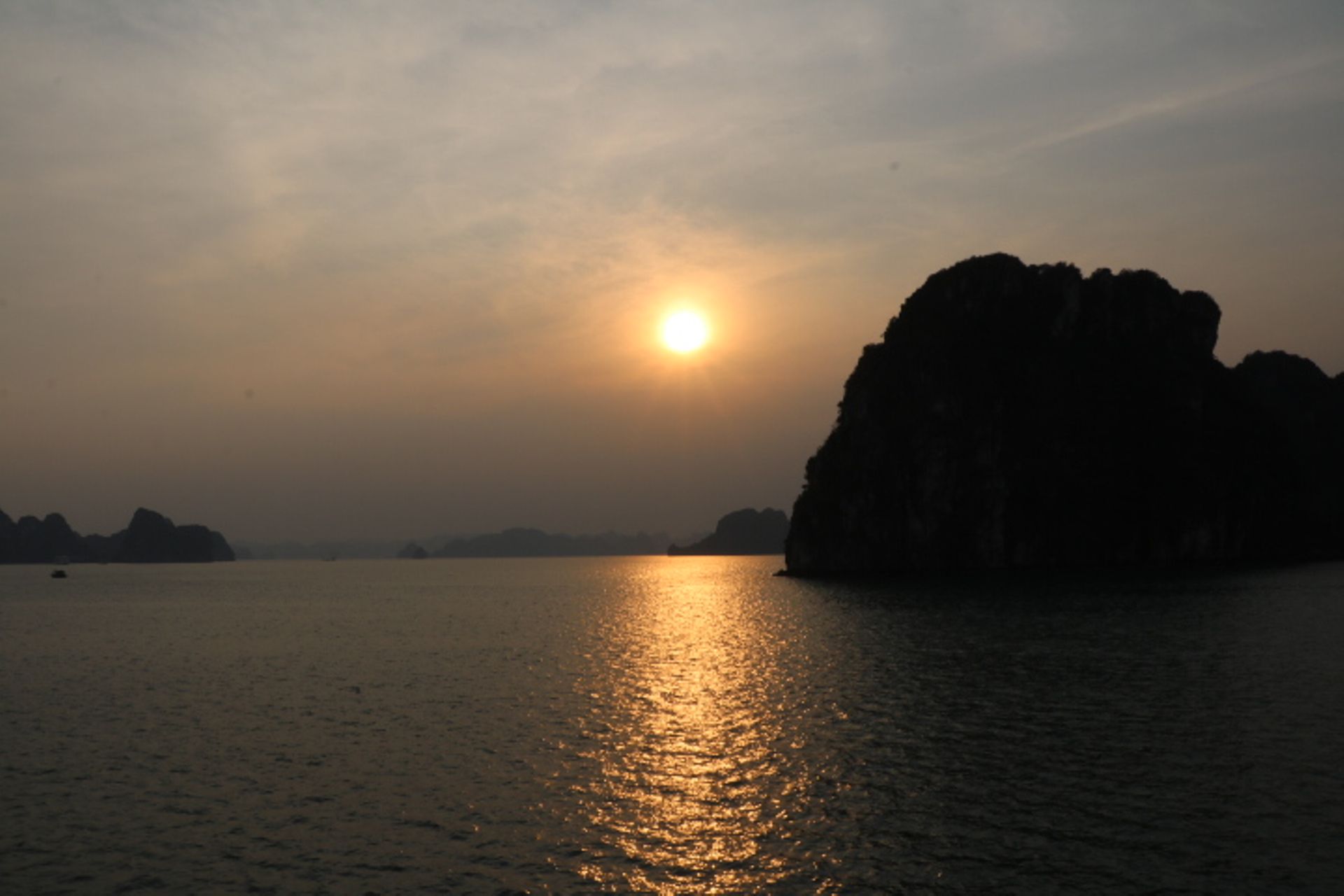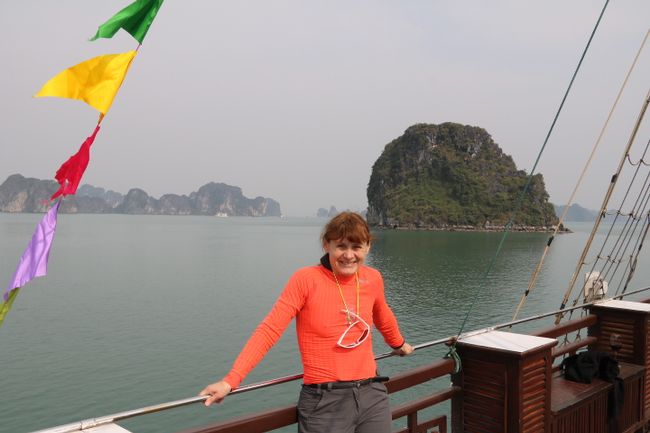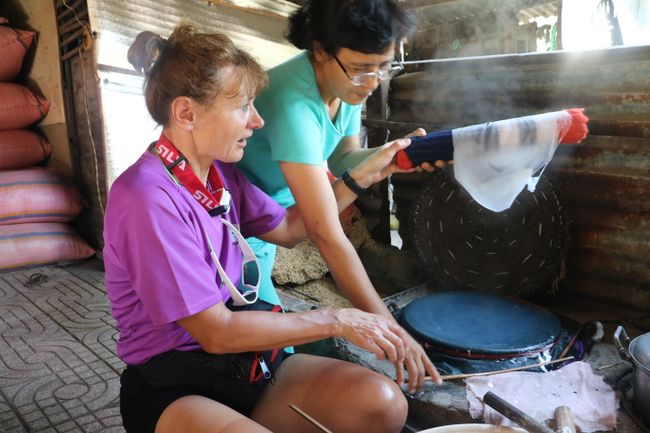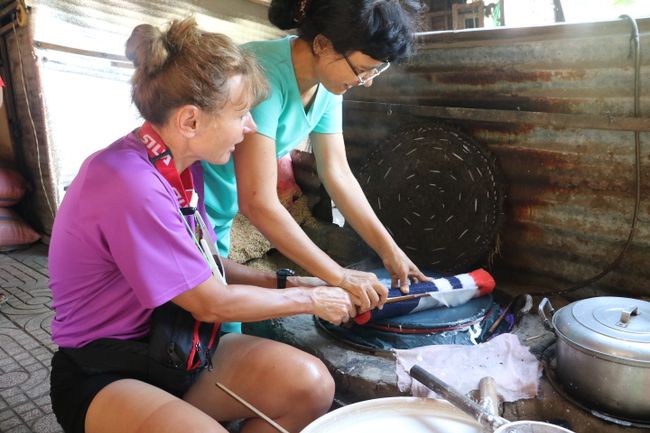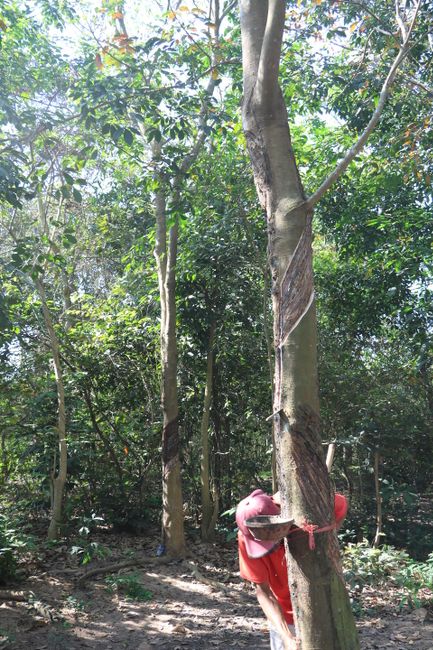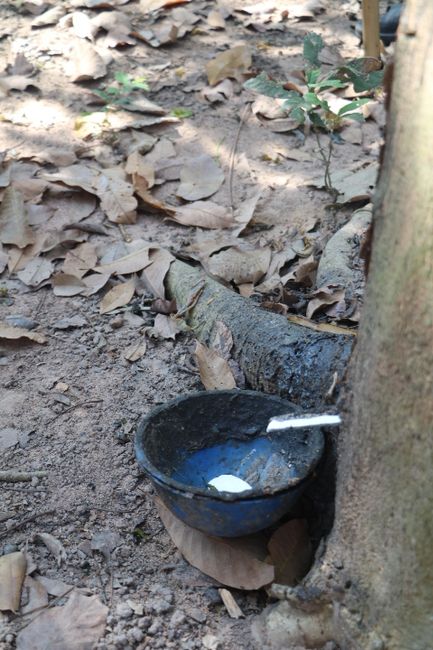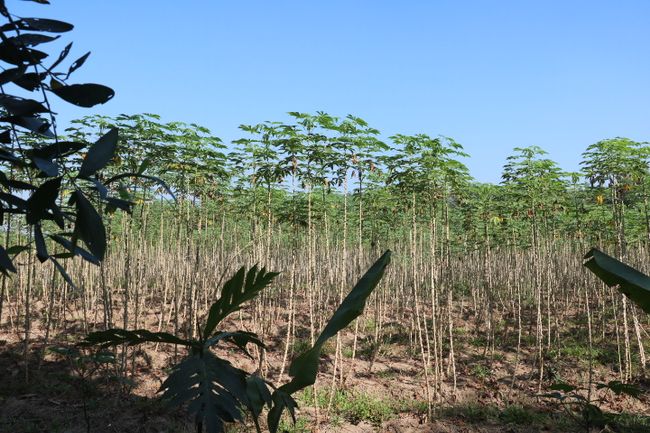Cu Chi Tunnel near Ho Chi Minh City
प्रकाशित: 24.02.2018
समाचार पत्रिका के लिए सदस्यता लें
Saturday, 24th February 2018
Departure is at 7:30am. Most of our group visit the Cu Chi Tunnel, about 2 hours by bus outside of Ho Chi Minh City. Our guide for today, Fu, has studied English and speaks the language fluently.
He explains some things about Ho Chi Minh City to us. It is a young city of only 300 years, with 12 million people and 8 million motorbikes. They are currently building a subway in Ho Chi Minh City, with the Japanese helping with the construction. They hope it will be finished in about 2 years. The bus system is rather uncomfortable and unreliable. Fu also explains that many young people are not satisfied with the political system in Vietnam and would like to leave the country. Unfortunately, it is not easy to do so. For example, only 100 students can work in Holland for a year.
Before we arrive at the tunnels, we stop at a private house. Fu shows us rubber trees. The trees only produce rubber latex after 7 to 10 years. The trees are also very unstable, they easily fall in wind-exposed areas. The trunks are tapped and you get 2 bowls of rubber latex every day. Rubber is a lucrative business. We also see the tapioca plantation behind the house. In this house there is also a majestic pig that we are allowed to feed, with guava and rice paper. Then we are shown how rice paper is made. It is similar to making crêpes. The rice flour mixed with water is applied to a hot plate and then the lid is closed briefly and fuel is added with rice waste and the rice paper is ready. It is placed on mats, which gives it its beautiful texture. Afterwards it has to dry in the sun. Rice paper with holes is unsuitable for export. If there are holes on the edge, then the rice papers are cut into smaller circles to make the hole disappear. Each of us gets to try making rice paper.
Now we come to the Cu Chi Tunnels. At the beginning we see a black and white film that illustrates the bombings and the methods of the guerrillas, Viet Cong (sympathizers, mostly peasants, from the communist North). On a diagram you can see the tunnel system, which at that time covered up to 250 km, of which only 7 km are still intact today. There were 3 levels. The top level was 1 – 3 m below the surface and this is where people mostly stayed. There were offices, rest rooms, kitchen and dining areas. The middle level was located 4 – 6 m deep and the bottom level was 8 – 10 m deep. This is where they took cover during attacks. Then there is an underground hole where you can hide. Covered with leaves, it is not visible. We all get to go in and of course come out again. Some places have scenes from that time period displayed with dolls. We are also shown a series of different traps. If you fall into one, you get impaled. They like to contaminate the spikes with feces to increase the risk of infection. If possible, you can also fire a Kalashnikov rifle here for a proud sum of money. The noise from the shots is extreme. Then we can walk through a tunnel, or rather crawl. You can cover a distance of 20, 40, 60 or 100 meters. The tunnel is a replica tunnel. Some of us feel a little claustrophobic, but I think it's fine. Since I am short, I can walk bent over and don't have to crawl. The Americans also tried to locate the entrances to the tunnels and pumped in water or gas. People also died due to lack of oxygen. When oxygen became scarce, the tunnel dwellers had to lie flat to consume as little oxygen as possible. We also see the ventilation systems. They look like termite mounds, but contain ventilation built with bamboo pipes. The smoke from the kitchen was also vented in such a way that it emerged very close to the ground, so that it could not be detected by airplanes flying overhead. The Viet Cong collected shot and unexploded bombs from the Americans and used them to build new bombs.
At the end, we are served tapioca as a snack and then we return to Ho Chi Minh City. I say goodbye to my fellow travelers on the bus, which is a bit sad. We were a great group. I call a taxi and go to the airport, where I have a few hours before my flights to Hanoi and then to Frankfurt.
समाचार पत्रिका के लिए सदस्यता लें
उत्तर
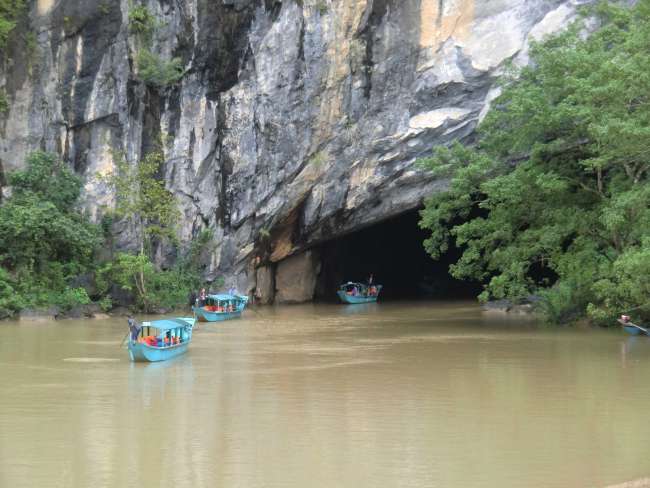
यात्रा रिपोर्ट वियतनाम
